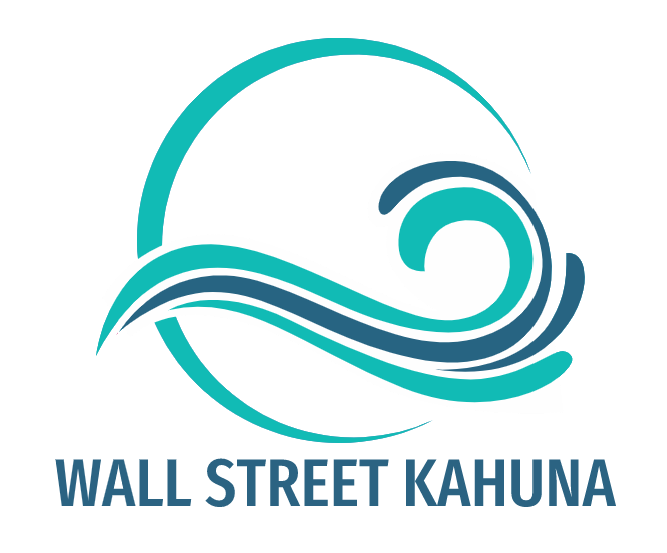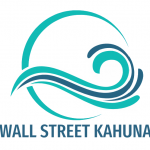The semiconductor industry’s impressive technological breakthroughs, along with growing demand for semiconductor chips from various industries, have been causing government and corporates to pour funds into the industry to address the ongoing chip supply shortage and foster the industry’s long-term growth. Because these factors could help ease the chip shortage by the end of next year, we think these 5 chip stocks are well-positioned to outperform the broader markets in the coming years. Also, these stocks are rated ‘Strong Buy’ in our proprietary rating system. So, let’s discuss these names.
Broadcom Inc. (AVGO)
AVGO in San Jose, Calif., designs, develops, and supplies a range of analog and digital semiconductor connectivity solutions and infrastructure software solutions. The company develops semiconductor devices, focusing on complex digital and mixed signal complementary metal-oxide-semiconductor-based devices and analog III-V-based products. Its products are used in data center networking, home connectivity, broadband access, telecommunications equipment, smartphones, and base stations.
On December 7, AVGO announced its intent to acquire privately-held AppNeta Inc., a computer software company. Combining AppNeta’s end-to-end visibility with AVGO’s proven Infrastructure and AIOps capabilities will enable enterprises that adopt SaaS, cloud migration, and other Internet-first strategies, to monitor and manage end-users’ digital experiences and meet ever-evolving business demands.
For its fiscal fourth quarter, ended October 31, 2021, AVGO’s net revenue increased 14.5% year-over-year to $7.41 billion. The company’s non-GAAP gross profit came in at $5.53 billion for the quarter, up 16.2% from the prior-year period. Its non-GAAP operating income was $4.38 billion, representing a 20.3% rise from the prior-year period. While its non-GAAP net income increased 22.2% year-over-year to $3.50 billion, its non-GAAP EPS increased 23% to $7.81.
As of October 31, 2021, the company had $12.16 billion in cash and cash equivalents.
Analysts expect the company’s EPS to increase 18% year-over-year to $33.05 in the current year. A $30.65 billion consensus revenue estimate for the current year represents an 11.7% rise from the prior-year period. In addition, it surpassed Street’s EPS estimates in each of the trailing four quarters. AVGO’s EPS is expected to grow at a rate of 14.7% per annum over the next five years.
The stock has gained 56.3% in price over the past year and 19.8% over the past month. It closed Thursday’s trading session at $664.80. AVGO’s 1.41x non-GAAP forward PEG is 18.4% lower than the 1.73x industry average. And in terms of forward EV/EBIT, AVGO is currently trading at 16.54x, which is 20.2% lower than the 20.73x industry average.
AVGO’s POWR Ratings reflect this promising outlook. The stock has an overall A rating, which equates to Strong Buy in our proprietary rating system. The POWR Ratings are calculated by considering 118 distinct factors, with each factor weighted to an optimal degree.
The stock has an A grade for Sentiment and Momentum and a B grade for Growth, Stability, and Quality.
Micron Technology, Inc. (MU)
MU designs, manufactures, and sells memory and storage products worldwide. The Boise, Idaho-based company operates through computer and networking, mobile, storage, and embedded business units. It sells dynamic random access memory chips (DRAMs), static random access memory chips (SRAMs), flash memory, semiconductor components, and memory modules to various end markets.
On December 1, MU expanded its business relationship with United Microelectronics Corporation (UMC), which helps MU to secure supplies for automotive, mobile, and critical customers into the future and increase collaboration across the semiconductor industry. This expansion will also help MU deliver its industry-leading memory and storage solutions to its customers globally.
MU’s non-GAAP revenue for its fiscal fourth quarter, ended September 2, 2021, increased 36.6% year-over-year to $8.27 billion. The company’s non-GAAP gross profit came in at $3.96 billion, representing an 87.8% rise from the prior-year period. Its non-GAAP operating income was $3.07 billion, up 136% from its year-ago period. While its non-GAAP net income increased 126% year-over-year to $2.78 billion, its non-GAAP EPS increased 124.1% to $2.42. As of September 2, 2021, the company had $7.83 billion in cash, cash equivalents, and restricted cash.
A $8.93 consensus EPS estimate for the current year represents a 47.4% rise from the prior-year period. MU surpassed the consensus EPS estimates in each of the trailing four quarters. Analysts expect MU’s revenue to come in at $32.22 billion for the current year, indicating a 16.3% year-over-year improvement. The company’s EPS is expected to grow at a 23.8% rate per annum over the next five years.
The stock has gained 35% in price over the past year and 10.6% over the past month. It ended Thursday’s trading session at $94.42. In terms of non-GAAP forward PEG, MU is currently trading at 0.47x, which is 73% lower than the 1.73x industry average. In terms of forward EV/EBIT, MU is currently trading at 8.90x, which is 57.1% lower than the 20.73x industry average.
It is no surprise that MU has an overall A rating, which equates to Strong Buy in our POWR Ratings system.
The stock has an A grade for Value and Momentum and a B grade for Quality, Sentiment, and Growth.
Diodes Incorporated (DIOD)
Plano, Tex.-based DIOD manufactures and supplies discrete, logic, and analog and mixed-signal semiconductor devices to the consumer electronics, computing, communications, industrial, and automotive markets. It sells its products through direct sales and marketing personnel, independent sales representatives, and distributors.
On November 17, DIOD introduced the AP7347DQ low dropout (LDO) voltage regulator, which is highly optimized for demanding noise-sensitive power-related automotive applications. Being AEC-Q100 Grade 1 qualified for its wide input voltage range, 60µA quiescent current, and short-circuit protection gives it the versatility to address numerous automotive application requirements and mitigate standby power losses. These qualities make it well-suited for a range of key in-vehicle functions. DIOD expects the voltage regulator’s superior power supply rejection ratio in a high-power density footprint could help it gain wide market reach in the coming months.
For its fiscal third quarter, ended September 30, 2021, DIOD’s net sales increased 52.3% year-over-year to $471.42 million. The company’s gross profit came in at $181.23 million, indicating a 63.1% increase from the prior-year period. Its income from operations was $77.25 million for the quarter, up 104.1% from the year-ago period. DIOD’s $67.28 million in non-GAAP net income represents a 105.2% rise from the prior-year period. Its non-GAAP EPS came in at $1.47, up 137.1% from the year-ago period. And it had $280.54 million in cash and equivalents as of September 30, 2021.
Analysts expect the company’s EPS to be $5.07 for the current year, representing a 115.7% rise from the prior-year period. It surpassed the consensus EPS estimates in each of the trailing four quarters, which is impressive. The $1.80 billion consensus revenue estimate for the current year indicates a 46.5% year-over-year improvement. DIOD’s EPS is expected to grow at a 15% rate per annum over the next five years.
The stock has gained 58% over the past year and has declined marginally over the past month. It closed Thursday’s trading session at $107.54. DIOD’s 0.57x non-GAAP forward PEG is 67.3% lower than the 1.73x industry average. And in terms of forward EV/EBIT, DIOD is currently trading at 17.32x, which is 16.4% lower than the 20.73x industry average.
DIOD’s strong fundamentals are reflected in its POWR Ratings. The stock has an overall A rating, which equates to Strong Buy in our proprietary rating system.
The stock has an A grade for Momentum and a B grade for Value, Growth, and Sentiment.
Tower Semiconductor Ltd. (TSEM)
TSEM is an Israel-based independent semiconductor foundry that manufactures and markets analog-intensive mixed-signal semiconductor devices internationally. It provides wafer fabrication services, enablement platforms for the design cycle, and transfer optimization and development process services to integrated device manufacturers and fabless companies. It serves consumer electronics, personal computers, communications, automotive, industrial, aerospace, and medical devices markets.
On December 21,TSEM and Juniper Networks (JNPR), a leader in secure, AI-driven networks, announced the world’s first silicon photonics foundry-ready process with integrated III-V lasers, amplifiers, modulators, and detectors. The new platform co-integrates III-V lasers, semiconductor optical amplifiers (SOA), electro-absorption modulators, and photodetectors with silicon photonics devices, all on a single chip. This integrated laser process addresses optical connectivity in data centers, telecom networks, and new applications in AI, LiDAR, and other sensors. Both companies are looking forward to profiting substantially in the rapidly growing silicon photonics transceiver market for data centers.
TSEM’s revenues for its fiscal third quarter, ended September 30, 2021, increased 24.7% year-over-year to $386.71 million. The company’s gross profit came in at $85.38 million for the quarter, representing a 59.7% year-over-year improvement. Its operating profit was $44.17 million for the quarter, indicating a 131.4% rise from the year-ago period. TSEM’s net profit came in at $39.09 million, up 157.2% from the prior-year period. Its adjusted EPS increased 127.8% year-over-year to $0.41. And the company had $211.50 million in cash and cash equivalents as of September 30, 2021.
The $1.53 consensus EPS estimate for the current year represents a 64.3% rise from the prior-year period. Analysts expect TSEM’s revenue to rise 19% year-over-year to $1.51 billion in the current year. It surpassed the Street’s EPS estimates in each of the trailing four quarters. The company’s EPS is expected to grow at a 15% rate per annum over the next five years.
The stock has gained 53.8% in price over the past year and 6.3% over the past month. It closed Thursday’s trading session at $38.40. In terms of forward EV/Sales, TSEM is currently trading at 2.49x, which is 41% lower than the 4.23x industry average. And in terms of forward EV/EBIT, TSEM is currently trading at 20.64x, which is 0.4% lower than the 20.73x industry average.
TSEM’s POWR Ratings reflect its solid prospects. The stock has an overall A rating, which equates to Strong Buy in our proprietary rating system.
TSEM has an A grade for Sentiment and Momentum, and a B grade for Growth and Stability.
Axcelis Technologies, Inc. (ACLS)
ACLS in Beverly, Mass., designs, manufactures, and services ion implantation and other processing equipment used to fabricate semiconductor chips internationally. The company offers high energy, high current, and medium current implanters for various application requirements. It also provides aftermarket lifecycle products and services and sells them to semiconductor chip manufacturers through its direct sales force.
On November 2, ACLS introduced the GSD Ovation high current and high energy batch implanters. The new GSD Ovation systems are designed to support the growing 200mm new fab construction and expansion activity. Innovative improvements, combined with a proactive, continuous improvement roadmap, enable the fastest and most cost-effective way to extend, optimize and sustain robust capability and unmatched reliability. ACLS expects the chip to witness high demand in the coming months.
ACLS’ total revenue for its fiscal third quarter, ended September 30, 2021, increased 60% year-over-year to $176.69 million. The company’s gross profit came in at $76.51 million for the quarter, representing a 58.9% improvement from the prior-year period. Its income from operations was $36.39 million, up 162.2% from the prior-year period. Its net income came in at $27.52 million for the quarter, representing a 155.1% year-over-year improvement. Its EPS increased 153.1% year-over-year to $0.81. And the company had $271.09 million in cash and cash equivalents as of September 30, 2021.
Analysts expect ACLS’ EPS to be $2.68 for the current year, indicating a 98.5% rise from the prior-year period. The $646.78 million consensus revenue estimate for the current year represents a 36.3% year-over-year improvement. ACLS surpassed the Street’s EPS estimates in each of the trailing four quarters. Analysts expect the company’s EPS to grow at a 20% rate per annum over the next five years.
The stock has gained 136.7% in price over the past year and 6.7% over the past month. It closed Thursday’s trading session at $68.08. ACLS’ 1.23x non-GAAP forward PEG is 28.9% lower than the 1.73x industry average. In terms of forward EV/EBIT, ACLS is currently trading at 17.48x, which is 15.7% lower than the 20.73x industry average.
ACLS’ strong fundamentals are reflected in its POWR Ratings. The stock has an overall A rating, which equates to Strong Buy in our proprietary rating system.
The stock has an A grade for Growth and Momentum and a B grade for Sentiment and Quality.
Read Next: IMPERIUM -The No. 1 Investment of the 2020s
Could this odd-looking machine really be the most transformative innovation in history?

Experts are screaming: “YES”!
Elon Musk calls it “amazing…”
A former Apple CEO says: “[It will] have a far bigger impact on humanity than the Internet.”
While a Harvard Ph.D. says it could “[surpass] the space, atomic, and electronic revolutions in its significance.”
It’s a technology I call “Imperium.”
And it’s about to spark the biggest investment mega trend in history … with one small Silicon Valley company at the center of it all.
To get all the details, click here now…







